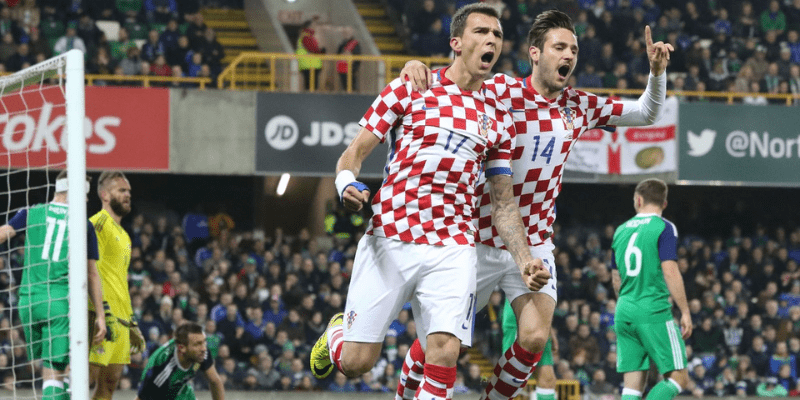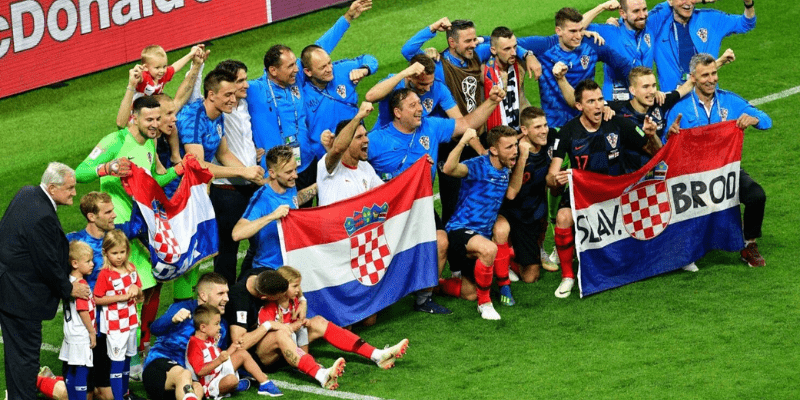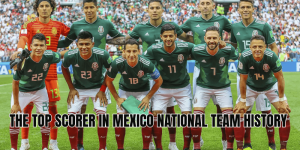Croatia’s football history whispers of dominance, grit, and eras carved by consistency. When we speak of the Croatia longest unbeaten run, the name that inevitably emerges is Dinamo Zagreb — a side whose undefeated stretch once shook domestic records and caught attention across Europe. But which run truly deserves the crown? In this article, KorKick will take you through the epicjourney of unbeaten runs in Croatian football — across clubs, across competitions — and reveal the records that still stand tall.
The meaning of an unbeaten run in Croatian football

In football lore, going on an unbeaten run means more than just avoiding defeat — it’s about endurance, mental strength, squad depth, and strategic consistency across multiple competitions (league, cup, sometimes European contests). In Croatia, such streaks are measured both in domestic competitions only (league + cup + supercup), and in all competitive matches including European ties. A club can have multiple unbeaten streaks — some more historic than others — but the ones that loom largest are those that span seasons and transcend domestic borders.
When we talk about the longest unbeaten run in Croatia, it’s essential to clarify whether we mean (a) club-level streaks, (b) domestic competitions only, or (c) inclusive of international matches. With that nuance, let’s unspool the records.
Dinamo Zagreb’s towering unbeaten legacy
Dinamo Zagreb is the undisputed heavyweight when it comes to unbeaten dominance in Croatian football. Their name appears again and again in record books., Dinamo holds the longest unbeaten run in domestic football in Croatia — 50 matches (across league, cup, etc.). This remains the benchmark for sustained invincibility in Croatian competitions.
But the story grows more fascinating when we look at their golden era in the mid-2010s. Between November 2014 and September 2015, Dinamo embarked on a 45-match unbeaten run in all competitions, which includes both domestic and European matches. This streak made them one of the top names in European “unbeatens” lists, sometimes tied with rivals such as Rijeka. It’s often cited as one of the longest such runs in club football across Europe.
That period saw Dinamo not only dominate the Croatian league but also punch above their weight in continental battles, protecting that aura of invincibility. The 50 domestic-match tally remains their top domestic record; but their 45-match all-competition streak is what marks them on broader European radars.
Key facts about Dinamo’s runs
- 50 matches (domestic unbeaten run): Their record in Croatian competitions remains unmatched by any other club.
- 45 matches (all-competitions unbeaten stretch):.
- Comparison in Europe: That 45-match streak places them among the higher echelons of historic club unbeaten runs in European context.
Rijeka’s bid for immortality

Dinamo may hold the crown, but HNK Rijeka, the coastal powerhouse, offered a fierce challenge. Rijeka recorded a 45-match unbeaten streak in official matches between April 2016 and May 2017 (league + cup + European). This run includes their most extended home unbeaten streaks too and is often regarded as one of Croatia’s fiercest tests to Dinamo’s dominance.
Thus, while Dinamo’s 50-game domestic record stands highest, Rijeka’s 45-game run (all competitive matches) is right up there — rivaling Dinamo’s all-competition record, and often appearing alongside it in debates.
Club vs. national team: the national unbeaten milestone
Switching focus to the national side — the Croatia national team also carries its own best unbeaten record. From mid-2006 to late 2007, Croatia went 16 matches without a loss (12 wins and 4 draws). That remains the team’s historic unbeaten streak, spanning qualifiers, friendlies, and European fixtures.
While 16 is distant, it has special weight: international football compounds challenges with squad rotation, travel, and stiff opponents. For Croatia, that 16-match run is a symbol of their golden era — bridging the 2006 World Cup and Euro qualifying campaigns.
Breaking down the toughest unbeaten streaks in Croatian football

Let’s compare the most significant unbeaten runs in Croatian football history:
| Team / Entity | Type / Scope | Length (Matches) | Period / Notes |
| Dinamo Zagreb (domestic) | domestic competitions only | 50 | Unbeaten across league, cup, etc. |
| Dinamo Zagreb (all cmp) | all competitive matches | 45 | Nov 2014 – Sep 2015 |
| Rijeka | all official matches | 45 | Apr 2016 – May 2017 |
| Croatia national team | all match types | 16 | June 2006 – Nov 2007 |
Among those, the 50-match domestic unbeaten run by Dinamo Zagreb holds the crown in purely Croatian competitions. But in conversations of broader prestige, Dinamo’s 45-match all-competition run and Rijeka’s matching 45-byte stretch echo with nearly the same resonance.
Factors behind these records
What enables such lengthy unbeaten runs? Several key ingredients:
- Squad depth and rotation: Injuries, fatigue, and fixture congestion demand rotation. Clubs that maintain unbeaten runs often have strong benches and youth talent.
- Strong defense with attacking spark: Most unbeaten runs involve grinding out narrow wins or draws, not just run-away scorelines.
- Mental resilience: Avoiding a loss under pressure — especially when form dips — separates champions. Domination domestically: When a club is significantly superior in quality, it can string together dominant performances.
- European discipline: For those runs spanning European matches (like Dinamo’s 45-game stretch), consistency in continental competition is crucial.
Dinamo in 2014–15, for example, combined domestic dominance with disciplined European showings — an impressive feat for a Croatian side operating under resource constraints compared to Europe’s giants.
Why this record matters today
Understanding the Croatia longest unbeaten run is not just an exercise in trivia — it reflects eras of power, club identities, and ambition. For Dinamo, it cements their dynasty; for Rijeka, it shows they can challenge; for fans, it’s a touchstone of pride.
In modern context, such records set benchmarks for future generations. Whenever a club launches a winning streak, supporters and media alike will invoke the 50-match landmark. It’s a target, an ideal, a challenge. And for the national team, the 16-match unbeaten stretch remains a legacy to be challenged anew.
Final Thoughts
The Croatia longest unbeaten run in club football belongs indisputably to Dinamo Zagreb, with a 50-match unbeaten streak in domestic competitions — an emblem of sustained superiority. Yet, the 45-match all-competition run by Dinamo (and mirrored by Rijeka) adds nuance and depth to the narrative. Meanwhile, the Croatian national team’s 16-match unbeaten sequence stands as a proud chapter in international competition.
Now that KorKick has guided you through the unbeaten legends of Croatian football, what’s next? Dive deeper: explore match-by-match breakdowns of those streaks, or track current clubs chasing similar records in the HNL. Bookmark this story, share with fellow fans, and keep an eye on future unbeaten runs — perhaps the next one you celebrate will rewrite history.






